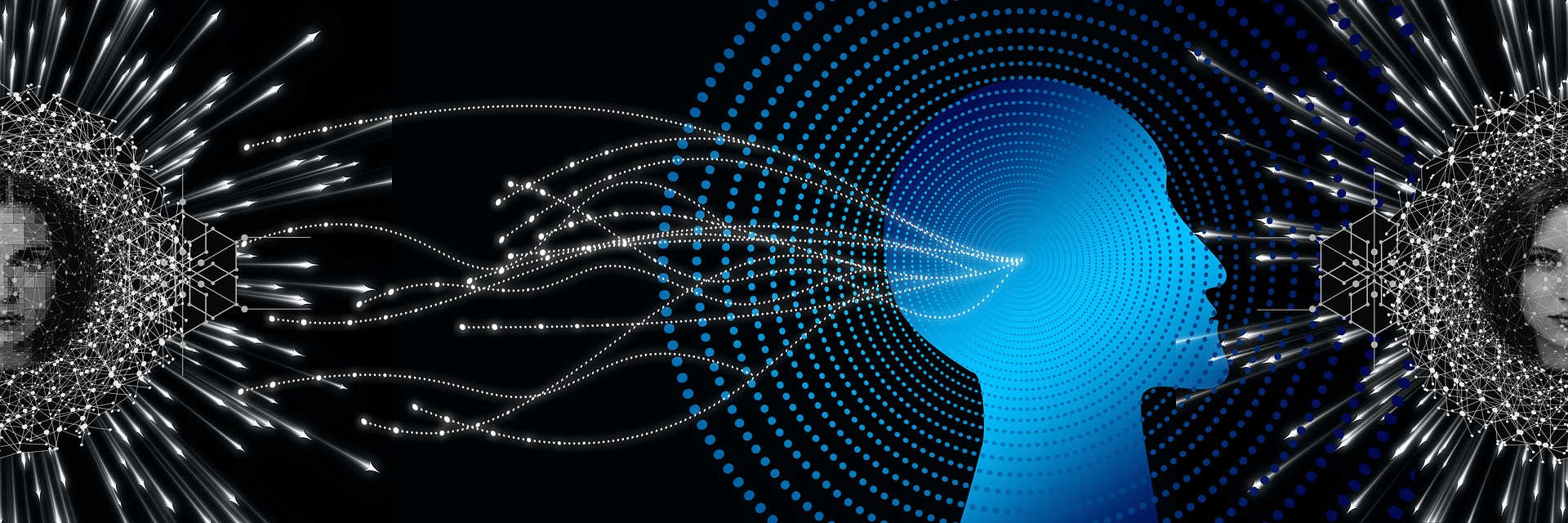Written by: Patricia Baronowski-Schneider, Executive Contributor
Executive Contributors at Brainz Magazine are handpicked and invited to contribute because of their knowledge and valuable insight within their area of expertise.

What is artificial intelligence and should the job market be afraid? Let’s let facial recognition decide what you think about this.

Have you ever wondered how artificial intelligence and facial recognition technology can be used to help us in our everyday lives? From identifying suspects in a criminal investigation to unlocking your phone, facial recognition technology has become an integral part of our world, thanks to advances in machine learning, computer vision, deep learning, image recognition, neural networks, biometrics, face detection, and object recognition.
Artificial Intelligence, or “AI” is defined as the replication of human intelligence functions by machines, particularly computer systems.
Artificial intelligence’s goal is to improve learning, perception, and reasoning through computers. Expert systems, natural language processing, speech recognition, and computer vision are some examples of AI applications.
Are there advantages? For sure.
A computer program with artificial intelligence can think and learn. For occupations that need attention to detail, AI is highly helpful. Data-intensive processes take less time to complete, the findings are consistent, and AI-powered virtual agents are constantly available.
Artificial intelligence can improve accuracy and precision while decreasing human error. By deploying AI robots, humans can overcome various risks. Robots powered by artificial intelligence (AI) are more responsible and capable of presenting accurate work.
Many dangerous tasks today include the use of artificial intelligence. Any kind of catastrophe, whether manmade or natural, uses it. AI robots can travel to Mars, disarm a bomb, scuba dive to the bottom of the ocean, or dig for colon oil. Artificial intelligence can effectively automate these tedious processes, freeing individuals from them so they may concentrate on being more creative.
Your daily applications, including Google Maps, Alexa, Siri, Cortana on Windows, OK Google, taking selfies, placing calls, and responding to emails, all make use of artificial intelligence. Humans require breaks and vacation time to maintain a balance between their job and personal lives, but AI can operate continuously without rest. Robots can multitask while thinking far more quickly than humans and providing precise results.
With the assistance of AI algorithms, they can manage tiresome, repetitive tasks with ease. Whether we like it or not, emotions control human behavior. AI lacks emotions and is extremely practical and logical in its approach. Artificial intelligence ensures more accurate decision-making since it lacks bias.
What are artificial intelligence’s drawbacks then?
Artificial intelligence is used by businesses to manage vast amounts of data that may contain sensitive information. They need to ensure that they are investing in the highest-quality security, or else this can turn into an even bigger significant problem. Even a minor security breach can have serious repercussions for organizations.
Google undoubtedly learned this the hard way after the company’s AI chatbot made a mistake during a showcase, causing shares to drop by $100 billion.
It’s crucial to keep the system updated and secure from errors or cybercrime.
Ironically, this is where Cryptocurrency can come into play ‒ Blockchain technology has many built-in security features that make it difficult for hackers to corrupt. AI robots are impersonal and make people apathetic.
Sadly, some people were sluggish from the beginning. Since they don’t need to memorize information or solve puzzles to complete jobs, robots automate the majority of time-consuming and repetitive tasks. They lessen how much we use our brains. Therefore, future generations may experience issues as a result of artificial intelligence addiction.
Because artificial intelligence is a technology built on pre-loaded knowledge and experience, humans cannot create it. AI is good at performing the same work repeatedly, but if we want any modifications or improvements, we must manually change the codes. AI can store an unlimited amount of data, but it cannot be used or accessed in the same way as human intellect. AI robots can be very expensive, time-consuming, and resource-intensive. AI requires the most modern technology and software to function.
The cost of AI robots is quite high. They call for highly technical knowledge. To create AI tools, they need a finite pool of skilled individuals. They are unable to generalize from one task to another since they only understand what has been demonstrated to them. If AI’s logical capabilities are not directed toward useful ends, it may constitute an existential threat to humans. There is a possibility of unemployment as a result of chatbots and robots replacing.
Artificial intelligence is unable to acquire the ability to think creatively. With pre-fed data and prior experiences, it can learn over time, but it lacks creativity in its approach.
Whether we are aware of it or not, the globe has been using apps that can unlock your phone by learning to identify your face or recognize you in a picture. What transpires, though, when the same technology is employed to identify you in a crowd, monitor your travels, or even form an opinion on what kind of person you are? For good reason, concerns about the drawbacks of facial recognition are becoming more and more prevalent. No one loves technological advancements that can jeopardize their safety, independence, or even freedom.
It might be challenging to balance the ethical and dangerous implications of facial recognition. For instance, it would seem logical to use facial recognition technology that can help you personally. Getting your phone unlocked, for example, or demonstrating that you are who you claim you are. What if the technology only benefits certain people while failing to benefit others? Would it be fair if your face didn’t match the technology?
Particularly if your visage eventually serves as your ID for everything from voting to buying groceries and boarding airplanes! This doesn’t sound that good, I guess.
What if, however, there were applications that could recognize our faces and alert us when we were about to become ill, mentally exhausted, or even in need of assistance from others? This could assist us to maintain our health and well-being. Unless, of course, you can only get trustworthy counsel if you have the ideal skin tone or certain facial traits.
If creators are as responsible as possible for eliminating bias in facial recognition apps and creating them to perform effectively for all users, difficulties like this can be avoided. But what happens when prejudice is a strength rather than a weakness? Imagine, for example, a face-scanning program that promises to be able to determine whether you are lying, whether you have committed a crime, or whether you are likely to do so. Robert Williams, Michael Oliver, and Nijeer Parks were misidentified by facial recognition software that placed them under arrest for crimes they did not commit. This is a clear example of the “cons” associated with facial recognition (pun intended).
Imagine that this app makes mistakes or reflects the prejudices of those who designed it, in which case it would support their perceptions of you as a liar or a lawbreaker. Consider the possibility that employers and law enforcement might then act as judge and jury using this app! Face recognition can reinforce our very human preconceptions and biases rather than lessen them in this way. It will take tremendous care to prevent this significant problem in the application of facial recognition.
And it will only get worse if technology is used to track every action we take, no matter where we are or what we’re doing.
Beyond prejudice, though, what if there were ways that facial recognition might reveal more about us than our five senses alone could? What if, for instance, there was an app that could quickly scan a group of individuals and identify those who had cancer, are dealing with mental illness, are depressed, are joyful, and are…persuadable?
Although I’m veering into the realm of speculation, academics are currently investigating how face recognition can reveal information that would otherwise be concealed from us and how this can be exploited, only from images and videos of people. In some circumstances, this can even be advantageous. But tools like these also raise some serious concerns about who has the right to examine you without your permission, especially if they go on to exploit the data against you.
Additionally, it makes you vulnerable to social manipulation in which the success of someone else depends on your appearance. Facial recognition technology has a lot of potential uses, but there are also a lot of ethical challenges that must be overcome if the technology is to be developed and applied ethically.
And in this case, everyone should have a say in how technology is used and isn’t used! This will be interesting, to say the least, in terms of what the future holds for us. While some jobs may be taken over by ChatGPT and AI and Robots, I don’t believe it will affect every job.
However, seeing where these discoveries will lead us, and using Facial Recognition as a prime example here, is an interesting road to follow.
Follow me on Facebook, Instagram, LinkedIn, Twitter, YouTube and visit my website for more info!

Patricia Baronowski-Schneider, Executive Contributor Brainz Magazine
Patricia Baronowski-Schneider. I’m the founder of Pristine. I have been in the IR/PR industry for over 35 years. Since 2010, I have been running Pristine Advisers. I am a 3 x’s international best-selling published author and have also been featured in various books about IR/PR and Business. I’m a member of the Farmingdale Chamber of Commerce, have been featured in and on multiple magazines and newspapers and won many awards for my work. I help companies around the world to be in front of the audiences that matter most to their business. Check out my YouTube Channel – Been There/Done That where I offer free advice on trending topics. Patricia Baronowski-Schneider. I’m the founder of Pristine.

